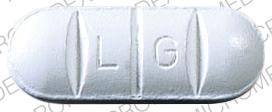Biltricide Disease Interactions
There are 4 disease interactions with Biltricide (praziquantel).
Praziquantel (applies to Biltricide) cysticercosis
Major Potential Hazard, High plausibility.
Since parasite destruction within the eye can cause irreparable lesions, ocular cysticercosis should not be treated with praziquantel.
References
- Markwalder K, Hess K, Valavanis A, Witassek F "Cerebral cysticercosis: treatment with praziquantel. Report of two cases." Am J Trop Med Hyg 33 (1984): 273-80
- Bada JL, Trevino B, Cabezos J "Convulsive seizures after treatment with praziquantel." Br Med J (Clin Res Ed) 296 (1988): 646
- Flisser A, Madrazo I, Plancarte A, Schantz P, Allan J, Craig P, Sarti E "Neurological symptoms in occult neurocysticercosis after single taeniacidal dose of praziquantel." Lancet 342 (1993): 748
- Leblanc R, Knowles KF, Melanson D, MacLean JD, Rouleau G, Farmer JP "Neurocysticercosis: surgical and medical management with praziquantel." Neurosurgery 18 (1986): 419-27
- "Product Information. Biltricide (praziquantel)." Bayer PROD (2001):
Praziquantel (applies to Biltricide) epilepsy
Major Potential Hazard, Moderate plausibility. Applicable conditions: Seizures
Praziquantel can exacerbate central nervous system pathology due to schistosomiasis. As a general rule this drug should not be administered in individuals with a history of epilepsy or seizures and any other signs of potential central nervous system involvement such as subcutaneous nodules suggestive of cysticercosis.
References
- "Product Information. Biltricide (praziquantel)." Bayer PROD (2001):
Praziquantel (applies to Biltricide) arrhythmias
Moderate Potential Hazard, Moderate plausibility.
Patients suffering from cardiac irregularities such as arrhythmias should be monitored during treatment with praziquantel.
References
- "Product Information. Biltricide (praziquantel)." Bayer PROD (2001):
Praziquantel (applies to Biltricide) liver impairment
Moderate Potential Hazard, Moderate plausibility. Applicable conditions: Liver Disease
Caution should be exercised when administering praziquantel at the usual recommended doses in patients with moderate to severe liver impairment (Child Pugh class B and C). Reduced metabolism of praziquantel may lead to considerably higher and longer lasting plasma concentrations of the unmetabolized drug.
References
- "Product Information. Biltricide (praziquantel)." Bayer PROD (2001):
Biltricide drug interactions
There are 102 drug interactions with Biltricide (praziquantel).
Biltricide alcohol/food interactions
There is 1 alcohol/food interaction with Biltricide (praziquantel).
More about Biltricide (praziquantel)
- Biltricide consumer information
- Check interactions
- Compare alternatives
- Pricing & coupons
- Reviews (3)
- Drug images
- Side effects
- Dosage information
- During pregnancy
- Generic availability
- Drug class: anthelmintics
- Breastfeeding
- En español
Related treatment guides
Drug Interaction Classification
| Highly clinically significant. Avoid combinations; the risk of the interaction outweighs the benefit. | |
| Moderately clinically significant. Usually avoid combinations; use it only under special circumstances. | |
| Minimally clinically significant. Minimize risk; assess risk and consider an alternative drug, take steps to circumvent the interaction risk and/or institute a monitoring plan. | |
| No interaction information available. |
Further information
Always consult your healthcare provider to ensure the information displayed on this page applies to your personal circumstances.


